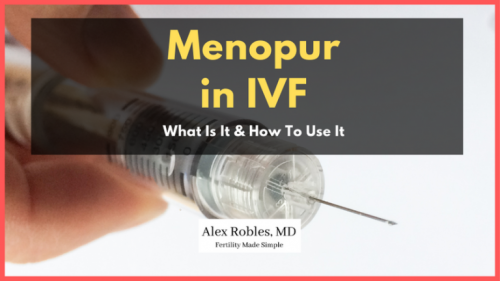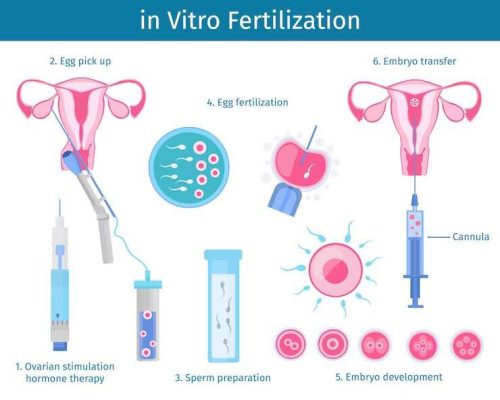Do IVF Babies Have More Issues? A Deep Dive into the Facts, Myths, and What Parents Need to Know
When you’re thinking about starting a family through in vitro fertilization (IVF), it’s natural to wonder about the little ones who come into the world this way. Are IVF babies more likely to face health challenges or developmental hiccups compared to kids conceived naturally? It’s a big question, and one that pops up a lot—whether you’re scrolling through parenting forums, chatting with friends, or even catching snippets of debate on social media. The good news? We’ve got a ton of research to lean on, and I’m here to break it all down for you in a way that’s easy to digest, packed with the latest info, and sprinkled with some fresh perspectives you might not have seen yet.
IVF has been around since 1978, when the first “test-tube baby,” Louise Brown, was born. Since then, over 10 million kids have arrived via this method worldwide. That’s a lot of birthdays! But with such a big number, it’s no surprise people want to know if there’s a catch. Does this high-tech start to life come with extra risks? Let’s dive into the science, bust some myths, and explore what’s really going on with IVF babies—plus, I’ll share some practical tips for parents and a few surprises along the way.
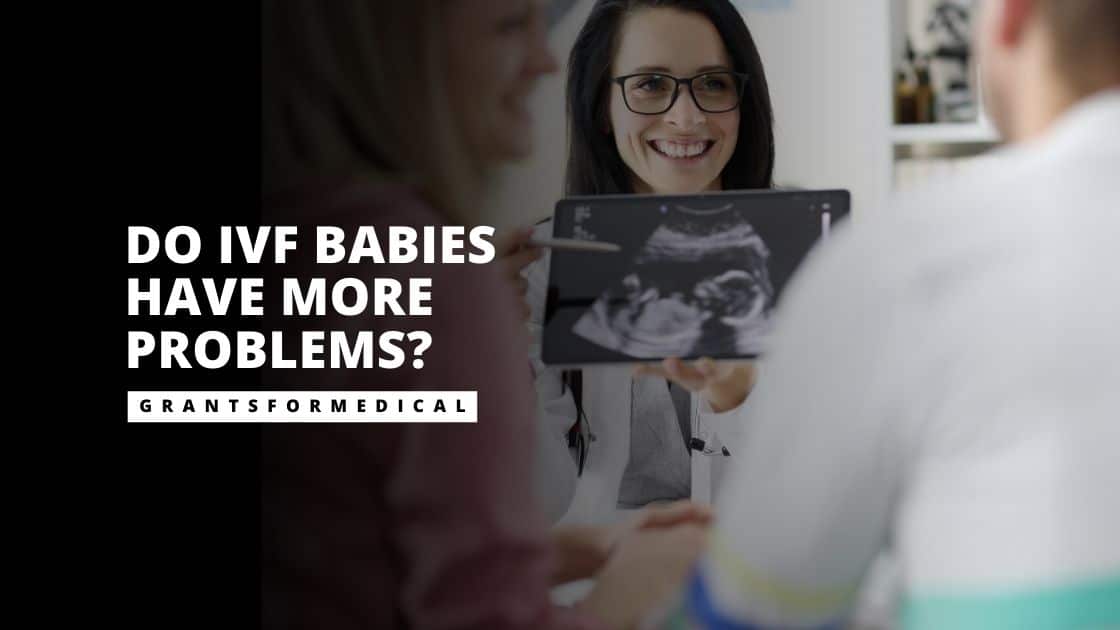
What Does the Research Say About IVF Babies and Health Risks?
The short answer is yes, IVF babies do show slightly higher rates of certain health issues compared to naturally conceived kids—but it’s not the whole story. Studies over the years have tracked everything from birth defects to long-term growth, and while there are some differences, they’re often small and tied to specific factors. Let’s unpack this step by step.
Birth Defects: A Small but Real Difference
One of the most talked-about concerns is whether IVF babies are more prone to birth defects—like heart problems or cleft palate. According to a massive study published in the European Heart Journal in 2024, babies conceived through assisted reproductive technologies (like IVF) have a 36% higher chance of major heart defects compared to their naturally conceived peers. That sounds scary, right? But here’s the context: the absolute risk is still low—1.84% for IVF babies versus 1.15% for others. That’s a jump, but it’s not like every IVF baby is facing this.
Other research, like a 2012 study from Australia, found that birth defects overall are about 1% more common in IVF babies. Things like musculoskeletal issues (think clubfoot) or genitourinary problems (like kidney defects) show up a bit more often. But here’s a twist: when scientists adjusted for factors like the mom’s age or infertility itself, the gap shrank. This suggests that sometimes it’s not the IVF process causing the issue—it’s the underlying reasons parents needed IVF in the first place.
Preterm Birth and Low Birth Weight: The Multiples Factor
IVF pregnancies are more likely to result in twins or triplets, especially if multiple embryos are transferred. And multiples? They often arrive early. A 2023 report from the CDC notes that IVF babies have an 80% higher risk of preterm birth (before 37 weeks) compared to single, naturally conceived babies. They’re also more likely to weigh less than 5.5 pounds at birth. This can lead to short-term challenges like breathing trouble or longer hospital stays.
But here’s the kicker: when you look only at single IVF babies (not twins), the preterm risk drops significantly. Modern clinics now push for single embryo transfers to cut down on these odds, and it’s working. So, if you’re planning IVF, this is something to chat about with your doctor—fewer embryos might mean a smoother ride.
Long-Term Health: Are There Lasting Effects?
What about as these kids grow up? A 2022 study from the Journal of Human Reproduction followed IVF teens and found they had a slightly higher chance of things like high blood pressure or faster weight gain in childhood. Another study from Switzerland in 2018 even spotted early signs of blood vessel aging in IVF teens—15% had hypertension by their teenage years. That’s not something you’d expect in a 14-year-old!
But don’t panic yet. A follow-up study from Murdoch Children’s Research Institute in 2015 checked in with IVF adults in their 20s and found most were just as healthy as their peers—no big differences in heart health, breathing, or metabolism. Plus, their quality of life and school success matched up too. So, while there might be some early blips, they often even out over time.
Why Might IVF Babies Face These Challenges?
Okay, so we’ve got some numbers showing IVF babies might have a few extra hurdles. But why? Scientists have a few theories, and they’re pretty fascinating when you dig into them.
The IVF Process Itself
IVF isn’t exactly a natural process. Eggs get pulled from ovaries, mixed with sperm in a lab, and grown into embryos before being placed back in the uterus. All those steps—like hormone shots or lab culture conditions—could tweak how a baby develops. For example, some researchers think the culture media (the “soup” embryos grow in) might mess with gene switches, a process called epigenetics. These tiny changes could explain why some IVF kids show differences in growth or health.
Infertility: The Hidden Player
Here’s something not everyone talks about: many couples using IVF were already dealing with infertility. And infertility itself—like low sperm quality or hormonal imbalances—can up the odds of health issues in kids, whether IVF is used or not. A 2012 study in The New England Journal of Medicine found that when they compared IVF babies to naturally conceived kids from subfertile parents, the birth defect gap almost disappeared. So, maybe it’s less about IVF and more about what’s going on before it even starts.
Parental Age and Stress
IVF parents tend to be older—often in their 30s or 40s. Older age can naturally increase risks like preterm birth or genetic glitches. Plus, the emotional and physical stress of infertility treatments might play a role. Think about it: months of doctor visits, hormone injections, and nail-biting waits could affect a pregnancy, right? It’s not fully proven, but it’s a piece of the puzzle worth considering.
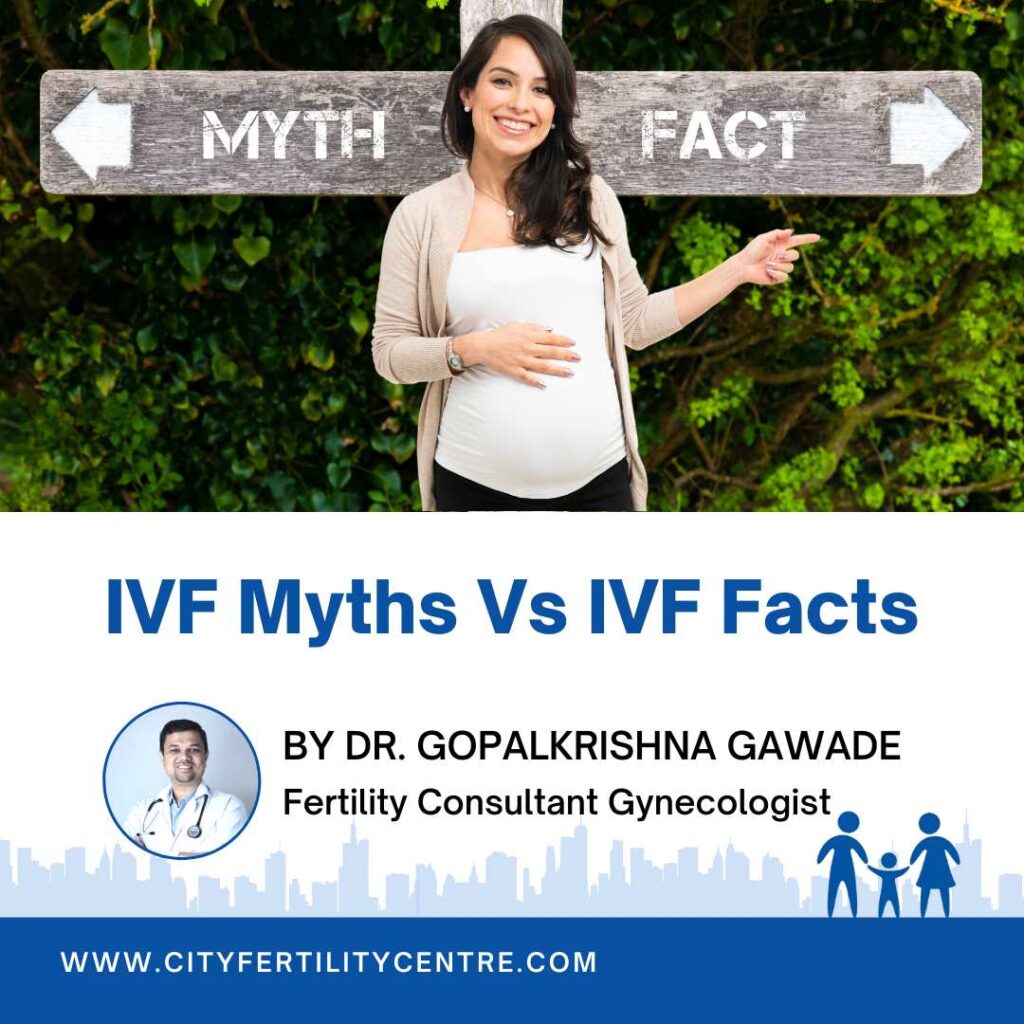
Busting Myths: What IVF Babies Don’t Have to Worry About
With all this data floating around, it’s easy for rumors to spiral. Let’s clear up a few myths that keep popping up—especially on platforms like X, where opinions fly fast and loose.
Myth #1: IVF Babies Are “Weaker” or “Sicker”
Some folks claim IVF kids are fragile or doomed to a lifetime of doctor visits. Not true! While they might face a slightly higher risk of certain issues at birth, studies like the 2023 PLOS Medicine report from Australia show that by elementary school age, IVF kids are hitting the same developmental milestones as their peers—think reading, math, and playground antics. No evidence of them being “weaker” overall.
Myth #2: IVF Causes Autism or Cancer
You might’ve seen posts linking IVF to autism or leukemia. The science? Mixed at best. A 2013 review in Human Reproduction found no solid tie between IVF and autism spectrum disorders. As for cancer, a 2019 study in JAMA Pediatrics saw a tiny uptick in leukemia risk (42% higher), but the actual numbers were so small—think 0.03% versus 0.02%—that experts say it’s not a major worry. More research is needed, but these aren’t dealbreakers.
Myth #3: IVF Kids Struggle as Adults
Another whisper is that IVF babies won’t thrive later in life. Nope! That Murdoch study I mentioned earlier? It showed IVF adults rocking college degrees and jobs just like everyone else. Plus, some are even having their own kids now—naturally! The first wave of IVF babies is in their 40s, and they’re doing fine.
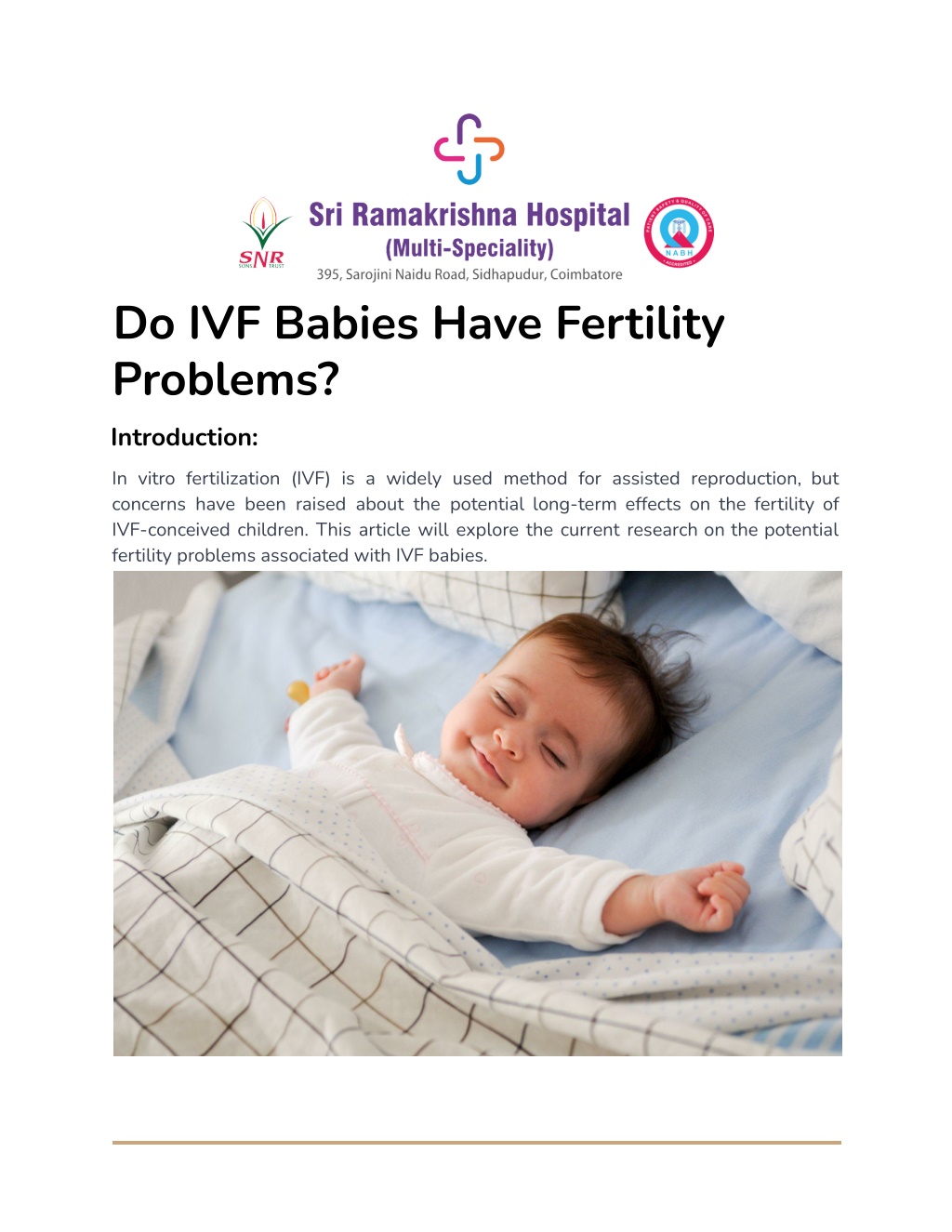
Interactive Quiz: How Much Do You Know About IVF Babies?
Let’s take a quick break and test your IVF smarts! Grab a pencil or just keep score in your head—answers are at the end of this section.
- What’s the biggest risk factor for IVF babies being born early?
A) The lab process
B) Multiple births
C) Mom’s diet - True or False: IVF babies always have more health problems than naturally conceived kids.
- By what percentage are heart defects more common in IVF babies, according to recent research?
A) 10%
B) 36%
C) 50%
Answers: 1) B, 2) False, 3) B
How’d you do? If you got 2 or 3 right, you’re already ahead of the curve! Let’s keep going.
Three Under-the-Radar Topics About IVF Babies
Most articles stick to birth defects and preterm stats, but there’s more to explore. Here are three angles you won’t find everywhere—fresh takes to give you a fuller picture.
1. Epigenetic Echoes: The Invisible Marks of IVF
Epigenetics is like the software that tells your genes what to do. Some studies—like one from PMC in 2022—suggest that IVF might leave tiny epigenetic “fingerprints” on a baby’s DNA. These aren’t mutations, but changes in how genes turn on or off. For instance, researchers found differences in placental DNA between IVF and natural pregnancies, hinting that the lab environment might tweak early development. Could this explain higher blood pressure in some IVF teens? Maybe. It’s cutting-edge stuff, and we’re still figuring it out—but it’s a game-changer to watch.
2. The Sibling Effect: Comparing IVF to Natural Kids in the Same Family
Here’s a cool twist: what happens when you compare IVF kids to their naturally conceived siblings? A UK study from 2022 did just that and found something surprising. IVF kids had more hospital visits as kids, but when stacked against their own brothers or sisters, the difference shrank. Why? It might be that IVF parents are extra cautious—rushing to the doctor for every sniffle because their little one feels “extra special.” This “parental concern factor” isn’t talked about enough, but it could skew how we see the data.
3. Mental Health in IVF Kids: A New Frontier
Physical health gets all the attention, but what about the mind? A 2022 study in Human Reproduction peeked at IVF teens and spotted a slight uptick in anxiety or behavioral issues. It’s not huge, but it’s there—maybe tied to those epigenetic shifts or just the stress of being an “IVF miracle” in the family. On the flip side, their quality of life was solid, so it’s not all gloom. This angle’s barely scratched the surface in most articles, but it’s worth a closer look as these kids grow up.
Practical Tips for IVF Parents: What You Can Do
If you’re on the IVF journey or already have an IVF baby, you’re probably wondering how to stack the odds in your favor. Here’s a game plan based on what we know—and a few tricks from the pros.
Before IVF: Set Yourself Up for Success
- Go for Single Embryo Transfer (SET): Twins are cute, but they come with higher risks. SET cuts down on multiples and keeps things safer. Ask your clinic about it—success rates are still great with one good embryo.
- Check Your Health: Infertility might be a clue something’s off. Get a full checkup—thyroid, blood sugar, the works—to tackle any issues upfront.
- Freeze Those Embryos: Some data (like a 2023 ScienceDirect review) shows frozen embryo transfers might lead to healthier babies—less preterm risk than fresh transfers. Worth a convo with your doc.
During Pregnancy: Keep It Steady
- Team Up with a Specialist: IVF pregnancies can be high-risk, especially with multiples. A maternal-fetal medicine expert can monitor you closely with scans and tests.
- Chill Out (If You Can): Stress might amplify risks. Try yoga, meditation, or even a good Netflix binge to keep your cool.
After Birth: Watch and Support
- Early Screening: Since heart defects or growth issues might pop up, ask about extra newborn checks—like an echocardiogram.
- Track Milestones: Most IVF kids catch up fine, but keep an eye on development. If something feels off, pediatricians can step in early.
✔️ Do: Talk openly with your doctor about risks and options.
❌ Don’t: Stress over every statistic—most IVF babies turn out awesome.
A Peek at the Numbers: IVF Baby Health Risks at a Glance
Here’s a quick table to sum up the big risks we’ve covered, with real data to back it up. Numbers are approximate but pulled from solid studies.
| Health Issue | IVF Risk | Natural Risk | Source |
|---|---|---|---|
| Major Heart Defects | 1.84% | 1.15% | European Heart Journal, 2024 |
| Preterm Birth (Single) | 10-12% | 6-8% | CDC, 2023 |
| Birth Defects (Overall) | 8-9% | 6-7% | NEJM, 2012 |
| Hypertension (Teens) | 15% | 10% | Swiss Study, 2018 |
See? The gaps aren’t massive, and context—like multiples or parental health—matters a ton.
What’s Trending: IVF Baby Concerns in 2025
Social media and search trends give us a pulse on what’s hot. On X, posts in early 2025 show folks buzzing about IVF risks like autism, cancer, and even “evolutionary downsides.” Google Trends data from the past year spikes around “IVF baby health risks” and “long-term effects of IVF babies,” especially after big studies drop. Parents want reassurance—and they’re digging beyond the headlines. That’s why we’re going deeper here, tackling not just the “what” but the “why” and “what now.”
Real Stories: IVF Families Weigh In
Numbers are great, but stories hit home. Meet Sarah, a mom from California who had twins via IVF in 2019. “One of my girls was born with a small heart murmur,” she says. “It freaked me out at first, but it closed up by her first birthday. They’re both wild and healthy now—chasing each other around the yard!” Then there’s Mark, whose son, conceived through IVF in 2005, just graduated high school. “He’s had asthma since he was little, but so did I as a kid. He’s acing college apps now—no regrets.”
These snippets show the range—some bumps, sure, but plenty of happy endings too.
Vote Time: What Worries You Most About IVF?
Let’s get you in on the action. Pick the one that keeps you up at night (or just bugs you a little):
- A) Birth defects
- B) Preterm birth
- C) Long-term health stuff
- D) Nothing—I’m cool with it all
Drop your vote in your head (or tell a friend!), and let’s see how it lines up with what we’ve covered. My guess? B and C are neck-and-neck.
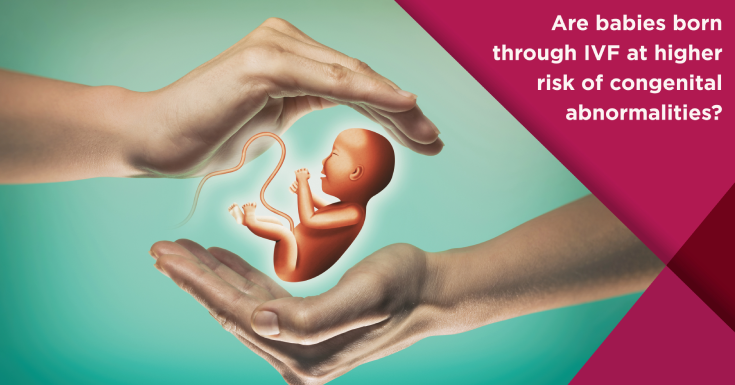
The Big Picture: Should You Worry About IVF Babies?
So, do IVF babies have more issues? Yes, a bit—but it’s not a horror story. The risks are real (heart defects, early arrivals, maybe some teen health quirks), but they’re small, manageable, and often tied to things like multiples or infertility itself—not just the IVF magic. Plus, millions of IVF kids are growing up healthy, happy, and totally normal—some even outpacing their peers in school or sports.
What’s new and exciting? Those epigenetic clues, the sibling comparisons, and the mental health angle—they’re pushing us to think harder about how IVF works and how we can make it even safer. Clinics are already adapting, with tricks like single transfers and frozen embryos cutting risks down. And for parents? Arm yourself with info, lean on your doctors, and don’t let the “what ifs” steal your joy.
IVF’s been a game-changer for families, and the kids born from it? They’re proof it’s worth it—little miracles with a few extra stats to keep an eye on. Got an IVF story or question? Share it with someone—it’s how we all learn. For now, rest easy knowing the science says these kids are tougher than you might think.


